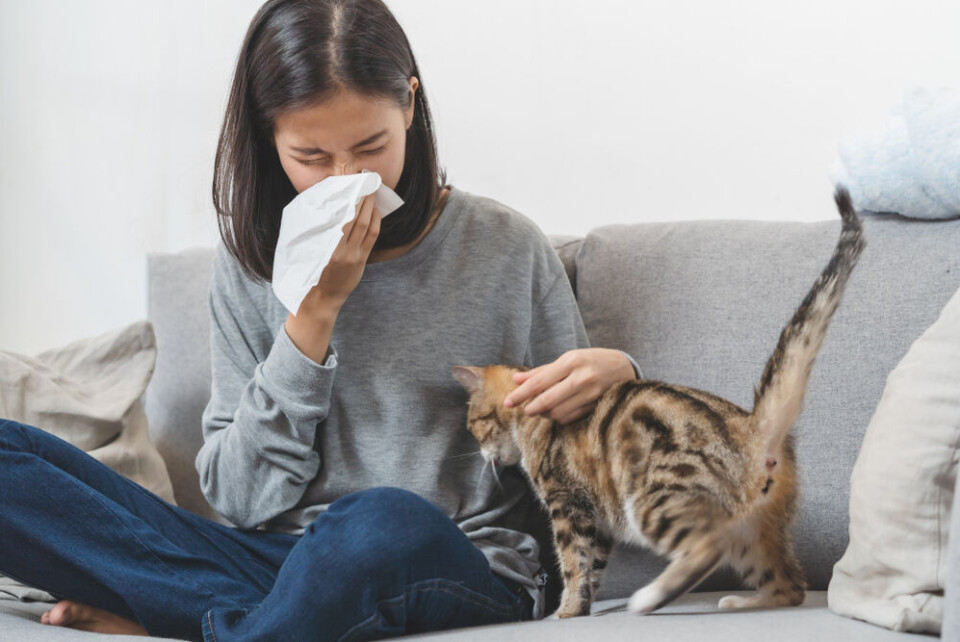-
White storks make strong return in France via nest ‘platforms’ and clipped wings
The Ligue pour la Protection des Oiseaux shares the conservation challenges in saving these birds from extinction
-
Hosting scheme in south-west France lets newcomers sample lifestyle
Households in nine Dordogne communes volunteer under Mes Nouveaux Voisins scheme
-
French boulangeries demand right for staff to work on May 1 so they can open
Artisan bakery owners can work but employees cannot, while certain industrial bakeries are allowed to remain open with workers
Cat allergy vaccine trialled by Franco-Canadian scientists
The vaccine could bring ‘hope to millions’ of sufferers, the researchers say

A vaccine against cat allergies is currently being tested by a Franco-Canadian biotechnology company, with clinical trials on people suffering from the allergy now underway.
The company Angany - based in Québec, Canada - announced the trials in a press release on October 9.
After promising earlier trials the tests themselves are taking place at the Royal Brompton Hospital in London, under the leadership of Professor Stephen Durham and Dr Guy Scadding, two leading clinical experts in allergy from Imperial College London (ICL).
The new vaccine, currently called ANG-101, is made using a “bio-particle that mimics the shape and size of a virus and whose surface is covered with thousands of copies of the cat's major allergen, the Fel d1 protein”, the press release said.
The company received approval to begin trials from the MHRA (Medicines and Healthcare Products Regulatory Agency), and will now evaluate “the allergenicity and immunogenicity of the new vaccine in adult patients allergic to cat dander”.
Angany co-founder Dr Loïc Faye said that the vaccine causes “a very strong production of antibodies that are capable of blocking the allergic reaction”.
If the vaccine is successful and rolled out to the public it should give allergic people relief for six to 12 months.
‘Hope to millions’
Angany said it had chosen to focus on allergies to cats because the reaction is common, permanent, and relatively simple to detect and diagnose; but not typically too serious or fatal.
It causes a scratchy throat and stinging eyes, and mild breathing difficulties.
Similarly 90% of people who are allergic have problems with the same allergen, which makes finding an effective vaccine simpler.
Angany said: “Beginning with a medicine against cat allergies is considered to be a prudent first step.”
“We are very pleased that our new approach to cat allergy immunotherapy is now being tested in patients,” said pharmaceutical entrepreneur Dr Louis-Philippe Vézina, President and CEO of Angany.
He said that the study “is the first step in a comprehensive clinical development programme” that is “expected to bring new hope to millions of allergy sufferers around the world”.
ANG-101 is the first in a “portfolio of vaccines” that will “target major allergies in humans and companion animals”, he added.
Dr Scadding at ICL said that the “ultimate goal in the field of cat allergy is to find a safe, effective and easy-to-administer vaccine” that would replace the “lengthy” and often less-than-effective “desensitisation” method that is otherwise used to help people with allergies.
Angany works on the development of allergy vaccines. Angany was started by researchers Dr Faye and Dr Véronique Gomord in France in 2010, in partnership with the Centre de recherche du CHUM in Montréal.
In France, it was known as Angany Genetics; before moving to Canada in 2017 and dropping ‘Genetics’ from its name.
Related articles
Four apps to help France's allergy sufferers
Allergies in France: Do anti-Covid masks protect against pollen?
























